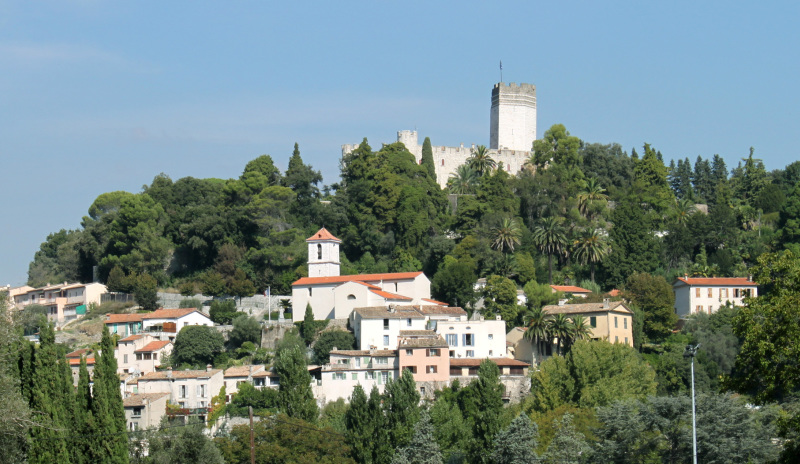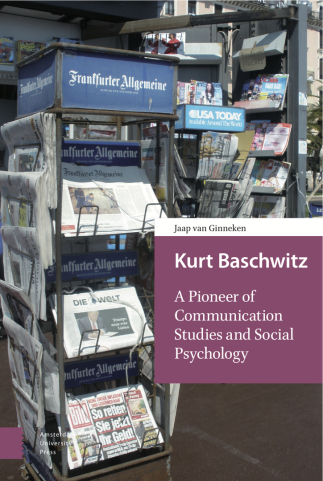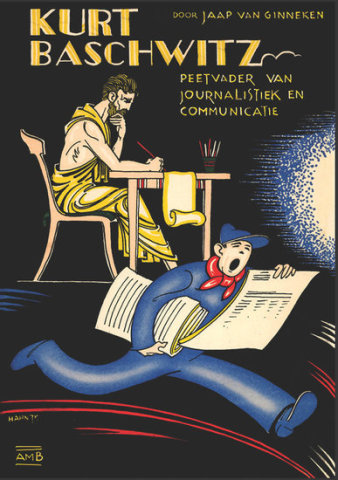
English Academic Edition: Kurt Baschwitz - A pioneer of Communiation Studies and Social Psychology (Amsterdam: Amsterdam University Press 2017). ISBN 9789462986046.
Abbreviated Dutch: Kurt Baschwitz - Peetvader van Journalistiek en Communicatie (Diemen: AMB Publishers 2018). ISBN 9789079700912.
Kurt Baschwitz (Offenburg 1886- Amsterdam 1968) was a German economist and journalist, who became a foreign correspondent in the main port Rotterdam of the neutral Netherlands, during the latter part of the First World War. Upon his return, he rose to become the main editor of the weekly of the national association of newspaper publishers in Berlin.
But the Nazis considered him a Jew and a critic, forced him to flee to Amsterdam, where he became involved in various exile activities. First in a semi-clandestine ‘information bureau’ which systematically documented the rise of anti-Semitism in Germany, and later evolved into the main international Holocaust Museum in London. He was then hired as a 'press scientist' by the newly founded International Institute of Social History, which also smuggled the archives of the German social-democratic party out – including key papers of Bakunin, Marx and Engels.
During the occupation, he was arrested in a razzia, brought to the notorious Westerbork transit camp for transport to the East and certain death. But his daughter, who became active as a courier for the resistance, got him out with a combination of true and false papers. After that, Baschwitz was forced to go into hiding, but continued to study and write. After liberation, Otto Frank asked Baschwitz’ expert advice on whether to publish the diary of his daughter Anne, which turned into an unprecedented historical bestseller.
Meanwhile, he had become involved in the founding of a new ‘7th’ faculty for political and social science at Amsterdam university, meant to help consolidate newly restored democracy. He was named full professor for the entirely new field of ‘press studies’, set up a ‘House of the Press’, and courses to deepen the scientific knowledge of practicing journalists. He soon re-established ties with colleagues in post-war Germany, and set up a thriving European network. He also founded an English-language journal on mass communication, and played a key role in the birth of the International Assocition of Mass Communication Research IAMCR - all still in existence today.
At the same time, he also promoted studies of propaganda, public opinion and ‘mass psychology’. In his half dozen books, he was preoccupied with 'The Riddle of the Mass' and the 4P's: the mass press, mass politics, mass propaganda and mass persecutions. He exerted influence in The Netherlands and in the Germanic world. But some of his works were also translated into French, Japanese, Swedish, Serbo-Croatian, and a brochure into Malay. Yet apart from a few chapters and articles, there is surprisingly little of or about him in English, the present and future major world language of science and communication. This book project is meant to repair that injustice, upon the 50th anniversary of his death.



